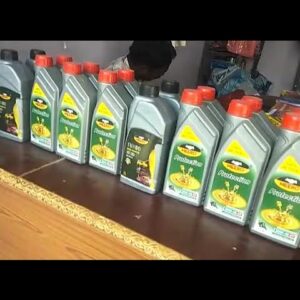Industry Overview
Camphor tablets are widely used in households and industries for their medicinal, aromatic, and preservative properties. Camphor is derived from the wood of the camphor tree and has applications in religious rituals, aromatherapy, and as a mosquito repellent. The demand for camphor tablets has been consistently growing, driven by the increasing use in temples, homes, and therapeutic applications.
Scalability and Profitability
Manufacturing camphor tablets is a relatively low-capital venture, making it ideal for small businesses that want to enter the market. The profitability can be increased by focusing on premium quality camphor, as well as expanding to cater to international markets where camphor is in demand.
- Profitability: Profit margins typically range between 20–35%. With specialized packaging and branding, businesses can tap into niche markets.
Subsidy Opportunities
Relevant Schemes and Departments:
- Ministry of MSME:
- Technology Upgradation Fund Scheme (TUFS): Provides financial assistance for improving the production technology for camphor tablets.
- National Medicinal Plants Board (NMPB):
- Offers subsidies for projects related to the cultivation and manufacturing of medicinal plants, including camphor.
Eligibility Criteria for Subsidy
- Business should be registered as an MSME.
- Compliance with environmental norms related to the processing and disposal of camphor-related waste.
Project Cost and Subsidy Details
- Setup Cost: ₹5–10 lakhs depending on the scale and the machinery used.
- Subsidy Amount: Grants may cover up to 25% of the total cost for machinery and production units.
How to Apply for Grants
Applications for grants can be made through the
MSME Portal or directly with the
National Medicinal Plants Board.
Future Potential
The increase in the demand for incense, aromatherapy, and religious products will continue to drive the growth of the camphor tablet manufacturing industry, especially in regions with large populations and spiritual practices.
To apply for the Food Processing Scheme, the following mandatory documents are required for new enterprises (Individuals/Firms) as outlined in the manual
1. PAN Card of concerned/all promoters.
2.Aadhaar Copy & Photo of all promoters/guarantors.
3. Address Proof: Any of the Officially Valid Documents (OVD) such as:
o Utility bill (not more than two months old) from any service provider (Electricity, telephone, post-paid mobile phone, piped gas, water bill).
o Property or Municipal tax paid receipt.
o Ration Card (Individual).
o Driving Licence
o Aadhaar Card.
o Voter ID Card.
4. Details of the site where the unit is to be established, including whether it is owned/rented/leased, along with proof (Lease/rent agreement should be for more than the loan repayment period).
5. Photocopy of Bank
6. Estimates and Quotation of all capital expenditure and machinery and equipment to be purchased. Statement/Bank Passbook for the last 6 months.
For existing enterprises with a turnover of less than 1 crore, similar documents are required, including PAN Card, Aadhaar, address proof, and site details.
If you need more specific information or additional documents, please let me know!















